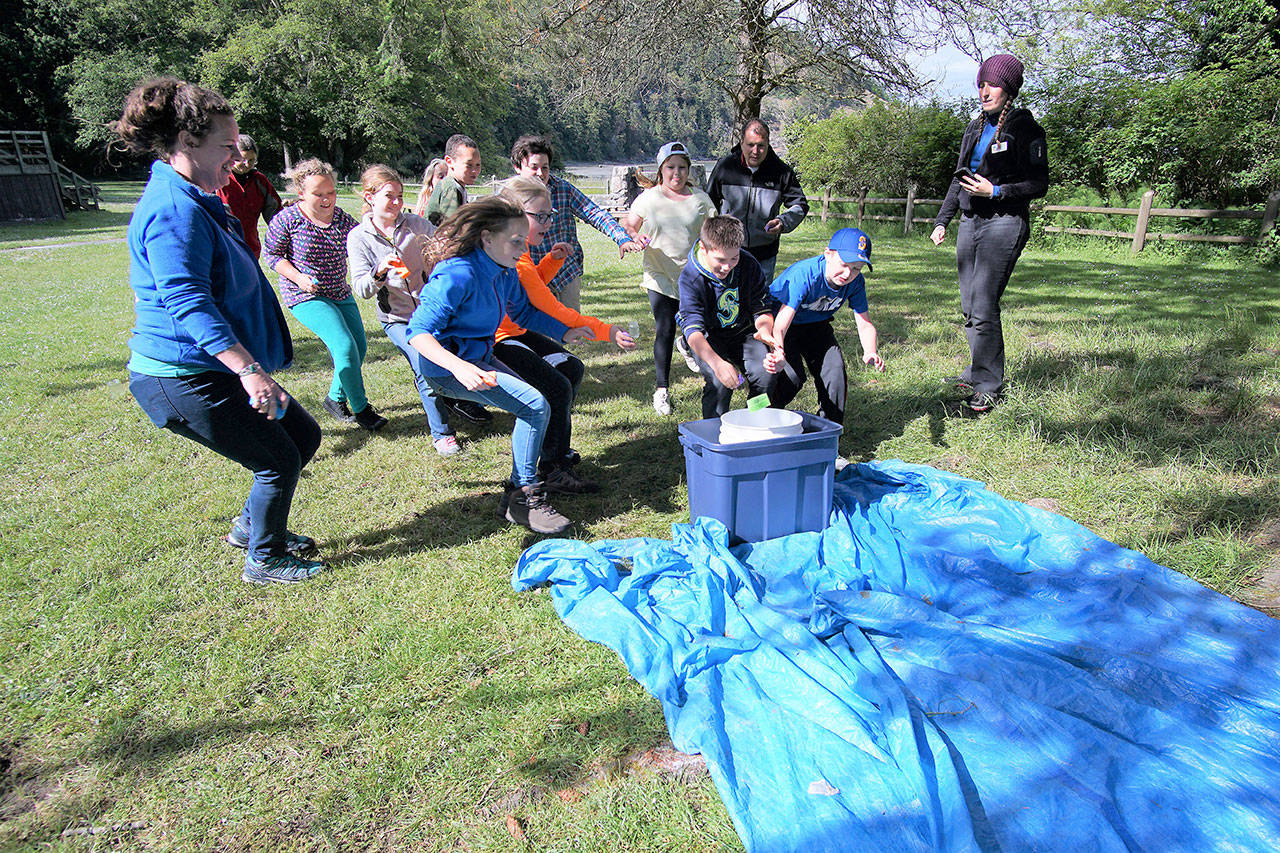It’s an organization ready to assist Whidbey residents for free on many fronts — from how best to kill off noxious weeds to preparing homes against wildfires to helping farmers with land surveying.
It’s also older than dirt. Well, going on its sixth decade at least.
Despite its 50-year presence, Whidbey Island Conservation District remains a hidden gem of help, say staff and board members.
“I would say we’re a best kept secret on the island,” said Sandy Welch, office and fiscal administrator. “We’re not just available for farmers but to any resident. We have so many ways we can help.”
Whidbey Island Conservation District, know as WICD, is one of 45 conservation districts around Washington state created in 1967. Its charged with helping farmers, rural land owners and residents manage natural resources through a variety of technical and educational assistance.
Both present and future generations are considered in its mission.
“Our one-on-one, non-regulatory assistance with landowners and land managers is our unique role,” said district manager, Karen Bishop.
Friday evening, Whidbey Island Conservation District is hosting a “50th anniversary Open House” at Coupeville’s Nordic Lodge.
Space is limited so registration in advance is required.
Conservation districts are overseen by a five-member volunteer board; three of whom are elected and two appointed by the Washington State Conservation Commission.
Sarah Richards is affiliated with both the local conservation district and its regional board. She agrees that Whidbey’s conservation district and its range of work suffer a lack of visibility — sort of like Whidbey winter skies.
“Whidbey Island Conservation District does more to help landowners manage their property in healthy ways than you realize,” Richards said. “Most people haven’t heard of WICD, which is a shame.”
Among the conservation district’s more known activities include starting the Whidbey Island Farm Tour 10 years ago (which has evolved into Whidbey Island Grown); helping Ebey’s Prairie landowners resolve water quality issues, obtaining a grant to replace the Maxwelton tide gate and many school-based interactive environmental workshops.
The annual Native Bare Root Plant Sale now underway is the district’s biggest outreach booster and fundraiser. Some 10,000 stems of about 35 species of native plants are sold through online pre-orders until Jan. 31 and ready for pick up Feb. 24.
Based in one of Coupeville’s many historic houses, the conservation office also serves as an information hub for residents looking for natural resource organizations focusing on gardening, small farming, water, shore and forestry issues.
Looking for goats to chew up your blackberry bushes? Trying to figure out best native plants for a shady spot? Need advice on your patch of wetlands?
WICD can help, said Kelsi Mottet, marketing, education and outreach coordinator.
“We can provide visits to homes and help with plant species, with soil enrichment,” she said. “We’re pretty quick to respond but sometimes there can be a waiting list.”
Areas where water quality impairment is documented or areas near sensitive water bodies are top priorities.
Beginning in 2010, Island County Commissioners approved a local assessment of $5 per parcel and 5 cents per acre to support WICD’s work. The funding is used as a match for other grants from private, state and federal sources. (Camano Island is supported by Snohomish Conservation District.)
Annual operating budget is around $475,000, which funds about four staff positions, projects costs and other expenses.
Conservation districts have no regulatory authority but they are considered a political subdivision of state government. They work closely with local governments and other land management programs, such as Washington State University Extension Services.
While times have changed, many of the challenges remain the same.
For example, drainage issues on farmland was the predominant issue that landowners were concerned about 50 years ago, Bishop said.
“Many of the watershed projects WICD works on help groups of landowners, who are often neighbors with common issues,” she said.
• Volunteers are needed prior to the Feb. 24 distribution and will receive a gift of a plant. Go to link: www.whidbeycd.org/native-plant-sale/



